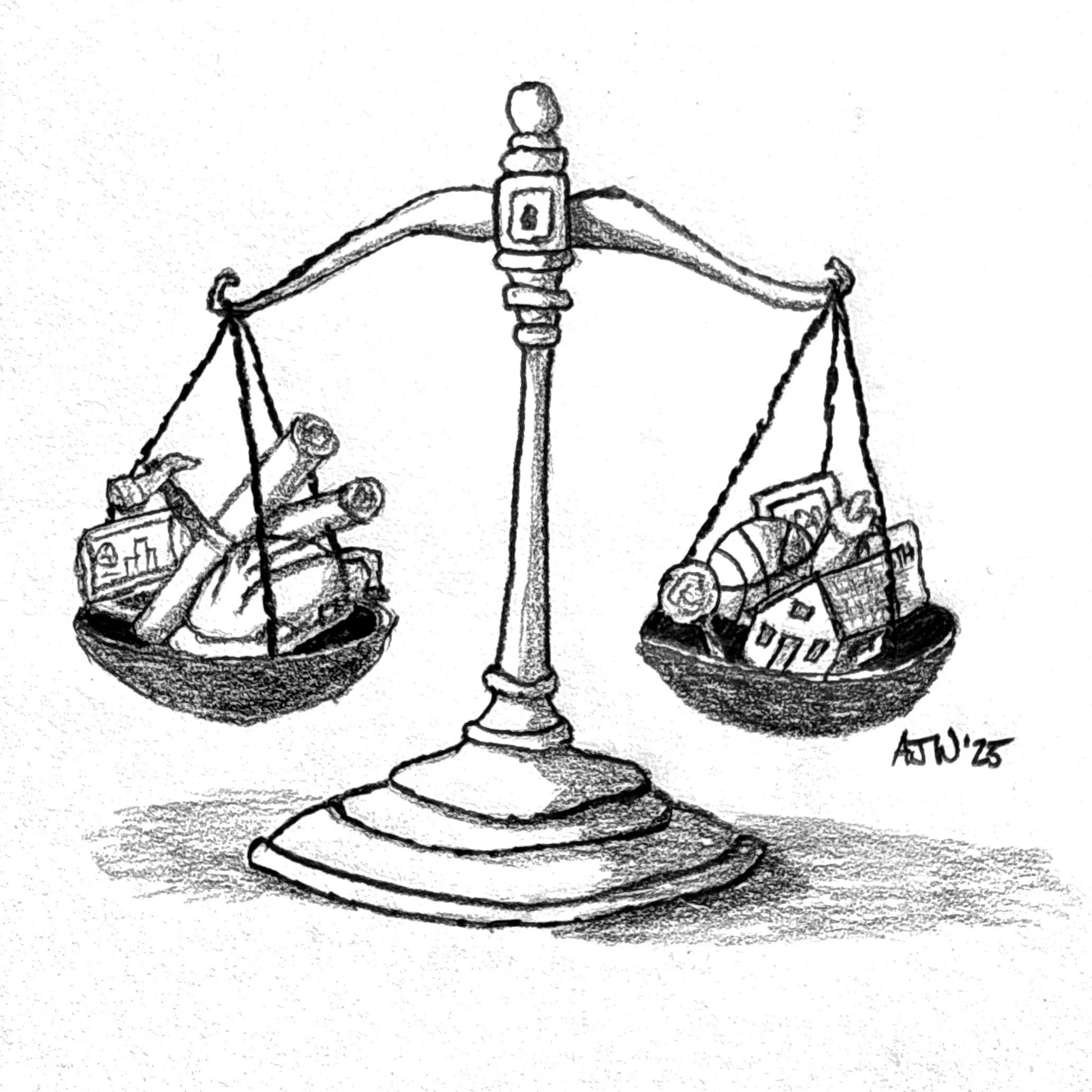The Truth About Work-Life Balance: It’s Personal
Work-life balance is one of the most frequently discussed topics in modern work culture. We see it plastered on walls in offices everywhere as one of the most utilized company core values.
But, for most, it's arguably the most misunderstood value to claim.
You see, many people constantly advocate for achieving balance but fail to grasp the simple fact that balance isn't a fixed endpoint. Nor is it universal. Balance is personal, ever-evolving and often radically different from the popular misconceptions.
Why We Desperately Need Balance
In construction, we build the foundations of communities, economies and dreams. Ironically though, in constructing the world around us, we often neglect to build and protect ourselves. We are notorious for working long hours, pushing for relentless deadlines and requiring significant physical and mental demands.
In fact, more studies each day highlight a troubling reality: nearly 60% of construction workers are feeling burnt out. Even worse, the suicide rate in construction is nearly four times higher than the national average across industries.
These numbers are unacceptable and underscore the reality of why it is imperative that we talk about and truly understand work-life balance.
How Balance is Misunderstood
Many a well-meaning HR department will often present work-life balance as a neatly packaged formula or a universal set of rules—"work fewer hours," "turn off notifications after 5 PM" or "use all your PTO." These simplistic approaches can inadvertently lead people to believe balance is easily attainable or identical for everyone.
But let me ask you, when was the last time you were able to use all your PTO?
On top of that, many will promote the ideal that balance must involve an equal split between work and personal life. In order to truly “unplug” you must completely separate all professional responsibilities from personal experiences 50/50. And, if you’re failing to do so, the narrative becomes about how you’re simply not trying hard enough or lacking self-discipline.
The reality, however, is far more nuanced. Work-life balance is not a rigid formula, checklist or perfect split; it's dynamic, deeply personal and continuously evolving based on individual circumstances, priorities and values.
What Makes Balance so Personal
For some, balance might mean being able to leave work at the job site and spending quality time at home, fully present with family. For others, it might mean having enough downtime to pursue hobbies that recharge and inspire.
I know for me, in this current season of life, balance is about having the flexibility to attend important life events, enjoying uninterrupted weekends with the kids and having the mental space to pursue a few personal goals here and there.
Oh, and to build a good Lego now and then.
But it wasn’t always that way. For some of you (and for me particularly early in my career), balance is about intensely working to prove ourselves. That, coupled with meaningful breaks surrounded by friends or loved ones makes building a career foundation possible.
Meanwhile, as we move to a time later in life, we may look to prioritize shorter workdays, spending time with grandchildren or even aging parents. Or what I personally look most forward to, exploring the world with our significant other on longer periods of vacation.
The important this is that work-life balance is not static—it naturally shifts and evolves through your different phases of life. What feels balanced in your twenties may differ significantly in your forties or fifties, as family dynamics, career responsibilities and personal goals change. Recognizing and adapting to these shifts allows you to maintain a sense of equilibrium and fulfillment throughout your life.
Finding Your Balance
Recognizing and embracing where we are as individuals in our own journey empowers us to discover our authentically unique path toward balance. So, how do you determine your personal definition of work-life balance?
Start with Your Family and Closest Friends: These people know you best and see your blind spots. Ask about their perceptions of your current balance and discuss what they feel would enhance your collective well-being. Their insights and feedback can be profoundly revealing, often highlighting aspects you might overlook.
Reflect Honestly: After these conversations, take regular inventory of your emotional and physical state. Notice patterns—when do you feel most energized? When are you most drained? What activities genuinely renew your spirit?
Set Clear Boundaries: With your family’s input, experiment with defining your clear boundaries between work and personal life. This might include specific work-free evenings, tech-free weekends or scheduled personal time in your daily calendar.
Prioritize and Adjust: Regularly reassess your commitments based on these discussions. Identify tasks and responsibilities that align with your collective family and personal values and let go of obligations that no longer serve your well-being.
Seek Support and Connection: Build a support network, both personally and professionally. Engage openly with colleagues about any mental struggles you’re facing, collaborate on solutions and keep your family involved in the discussions. Remember you're not alone in this.
Give Yourself Permission to Rest: Understand that rest isn't earned; it's essential. Give yourself permission and encouragement to pause, recharge and rest without guilt, understanding it's critical to maintaining a healthy balance.
Ultimately, finding balance isn't just about self-care—it's about creating a sustainable, fulfilling life that honors your health, happiness and relationships. It's an investment not only in yourself but also in the people who matter most to you.
You Deserve Balance
You owe it to yourself and your family to pursue your uniquely authentic version of balance actively. Your well-being matters, period. By taking intentional steps toward discovering what balance means for you, you build a life that not only supports your work but enriches your whole self.
Let's commit today to building better lives—not just buildings. Your balance, your health, your happiness—they're worth the effort.
Because the industry needs your best self.
Construction is cool, tell your friends!

